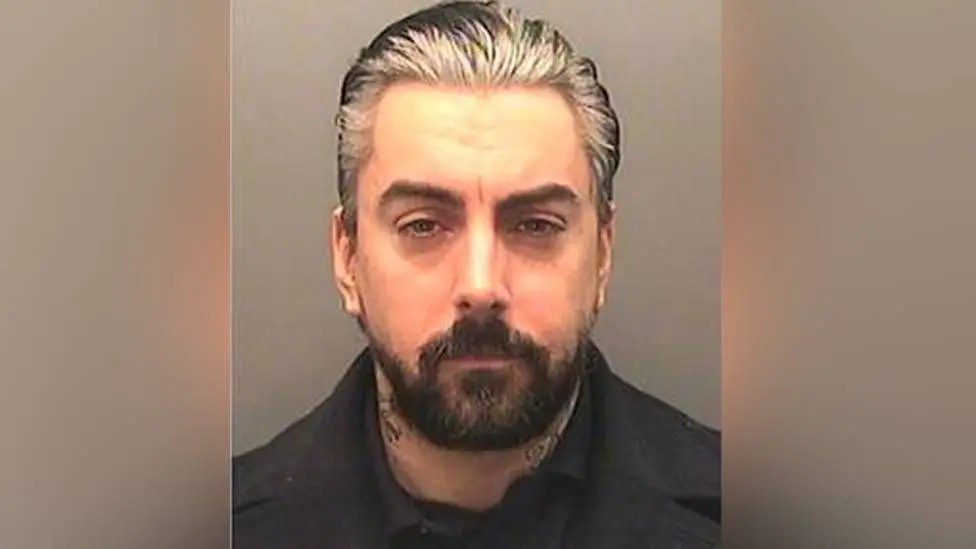Why should we care about a degenerate paedophile allegedly put to death by those locked up with him in prison? Ian Watkins, the former lead singer of the Welsh rock band the Lostprophets, was reportedly stabbed to death in HMP Wakefield yesterday. Watkins was convicted in 2013 of multiple counts of sexual violence against children, including babies, in offences so depraved many people would say he deserved his execution by the state. He was serving a 29-year sentence. Two prisoners have been arrested by West Yorkshire police on suspicion of his murder. Absent any sympathy for the wretched way this man lived and died, this incident is important because of what it says about the dire state of our high security jails.
Prisons have social hierarchies much like society in general and those who offend against children are eternally at the bottom of the pile
HMP Wakefield holds some of the most dangerous predators in Britain. It is part of our penal system’s long-term and high-security estate, holding category A prisoners whose offences are so grave they must be held in specially adapted prisons – sometimes for decades, occasionally for life. Wakefield has traditionally held a large number of often notorious sex offenders earning the lurid tabloid soubriquet ‘Monster Mansion.’ The latest assessment of its effectiveness by the independent HM Inspectorate of Prisons after an unannounced visit was published less than a fortnight ago. It does not make happy reading for senior bosses at HM Prison Service. And it should very much worry the new Justice Secretary David Lammy.
Wakefield is a prison with ‘no coherent strategy to reduce violence’ according to the watchdog. It found that ‘day to day security processes were undermined by serious failings in physical security measures.’ A lack of investment in maintenance in these systems was evident. There had been a 72 per cent increase in serious assaults which had caused the safety rating to decline to ‘not sufficiently good.’ Forty-eight per cent of staff surveyed stated their morale was ‘low’ or ‘very low.’ Senior leaders were not visible enough. Experienced staff were being sent on duty to other failing prisons. In an illustration of the risk, last year two officers were stabbed by a prisoner who was in the maximum security wing of the prison – the Close Supervision Centre – designed to contain offenders who pose the highest physical risk to staff or inmates.
It is not clear where Watkins was located within the prison but no one can dispute the fact that he walked around with a large target painted on his back. Prisons have social hierarchies much like society in general and those who offend against children are eternally at the bottom of the pile. Watkins survived another attack by prisoners at Wakefield several years ago. At Wakefield until relatively recently the preponderance of sexual predators in the population would have meant that Watkins was an unremarkable sadist save for his public profile. But the demographics in the jail have shifted with an influx of younger and more volatile prisoners. These are very difficult places to keep safe at the best of times.
But there are deep problems in many of the prisons that hold the people we should be most scared of. Two of our other high-security prisons holding terrorists had such poor drone defences that His Majesty’s Chief Inspector described them as a ‘national security risk.’ An alleged attack on prison officers by Manchester arena bomber Hashem Abeidi in HMP Frankland caused a national scandal over staff safety. In HMP Whitemoor a prisoner was murdered in its Close Supervision Centre on the same weekend as the Frankland incident, bringing prison homicides to a ten-year high. In HMP Belmarsh, the Southport killer Axel Rudakubana is under police investigation for allegedly assaulting an officer there with boiling liquid.
The argument that we should expect this kind of violence in places saturated with brutality is routinely used by the bureaucrats running the system. They will be hoping that a lack of sympathy for the victim of this latest apparent security failure will blunt the force of any criticism. Yet the state is paid to carry out the sentence of the courts, not permit death by its negligence. Prison officers do not consent to being attacked or killed as a condition of service. Watkins was a high profile and notorious offender whose risk from others was well known. We won’t mourn his violent demise but we should look at what it says about the state of the system as a whole: that it is decrepit, declining and dangerous.








Comments